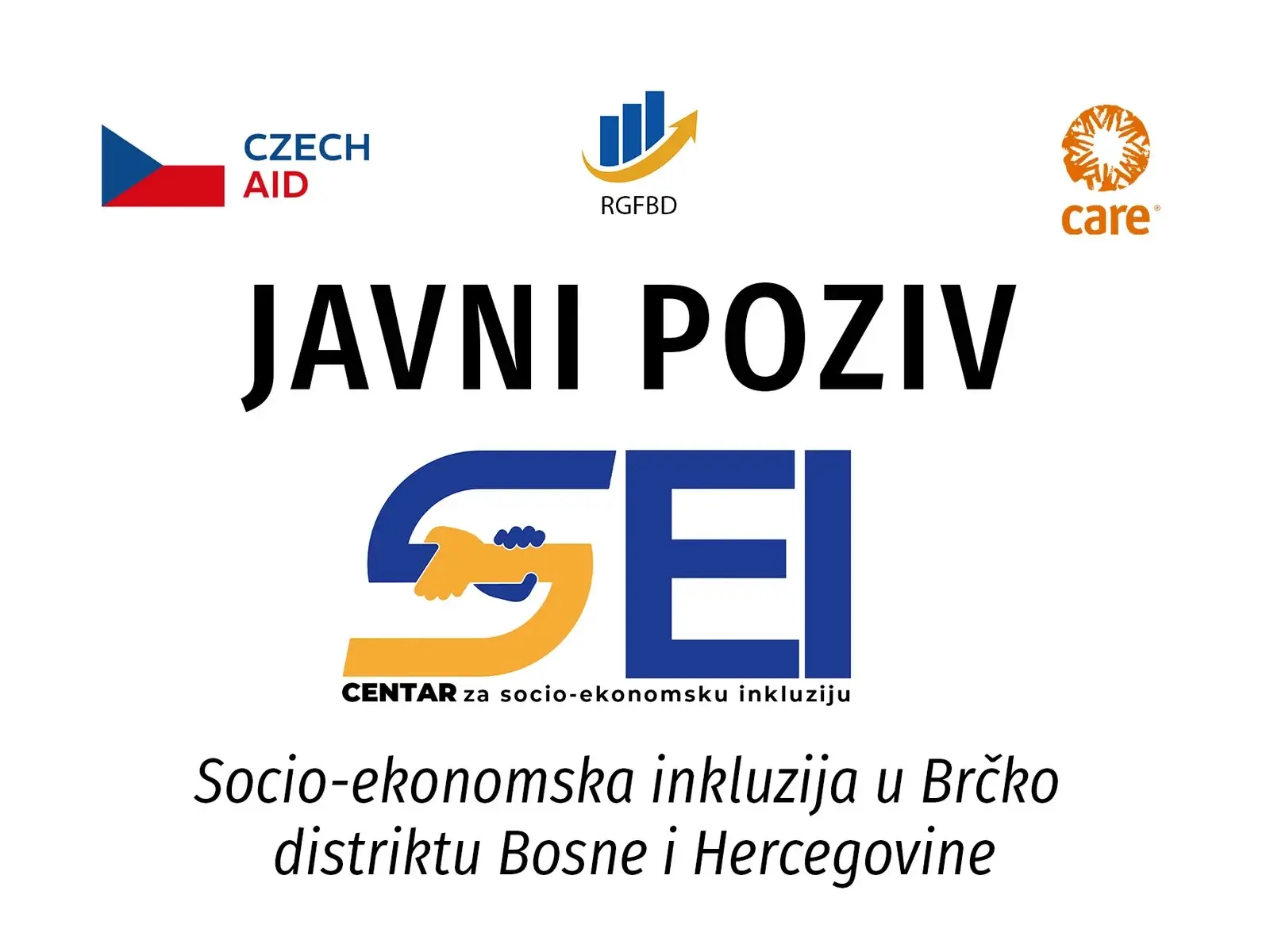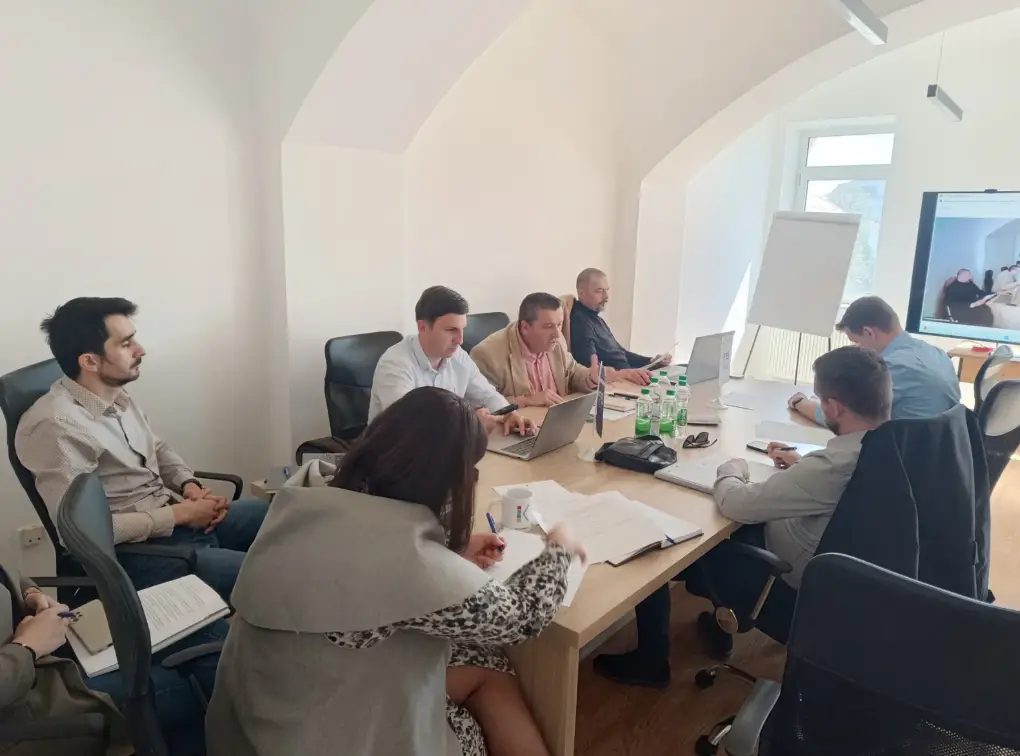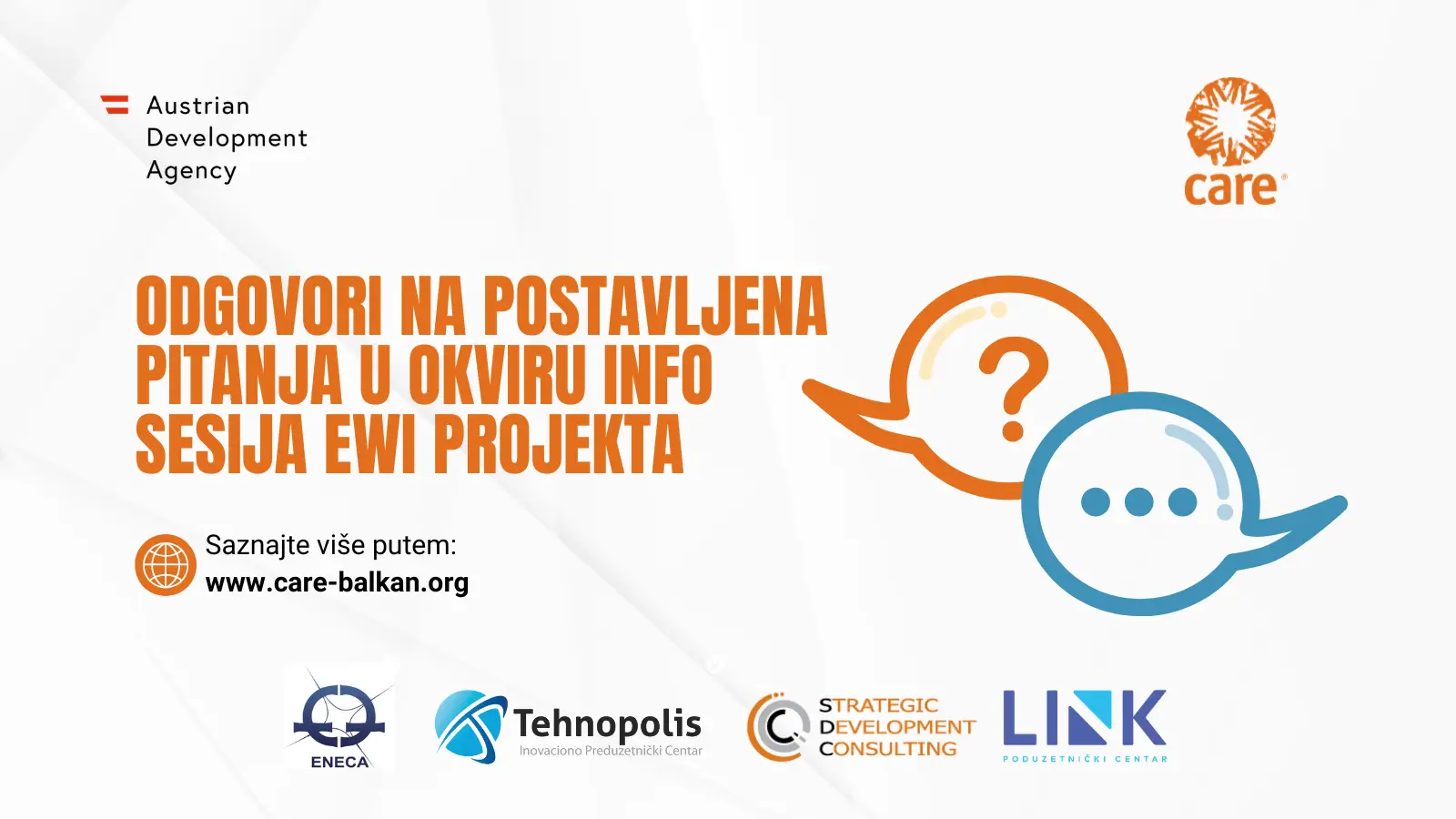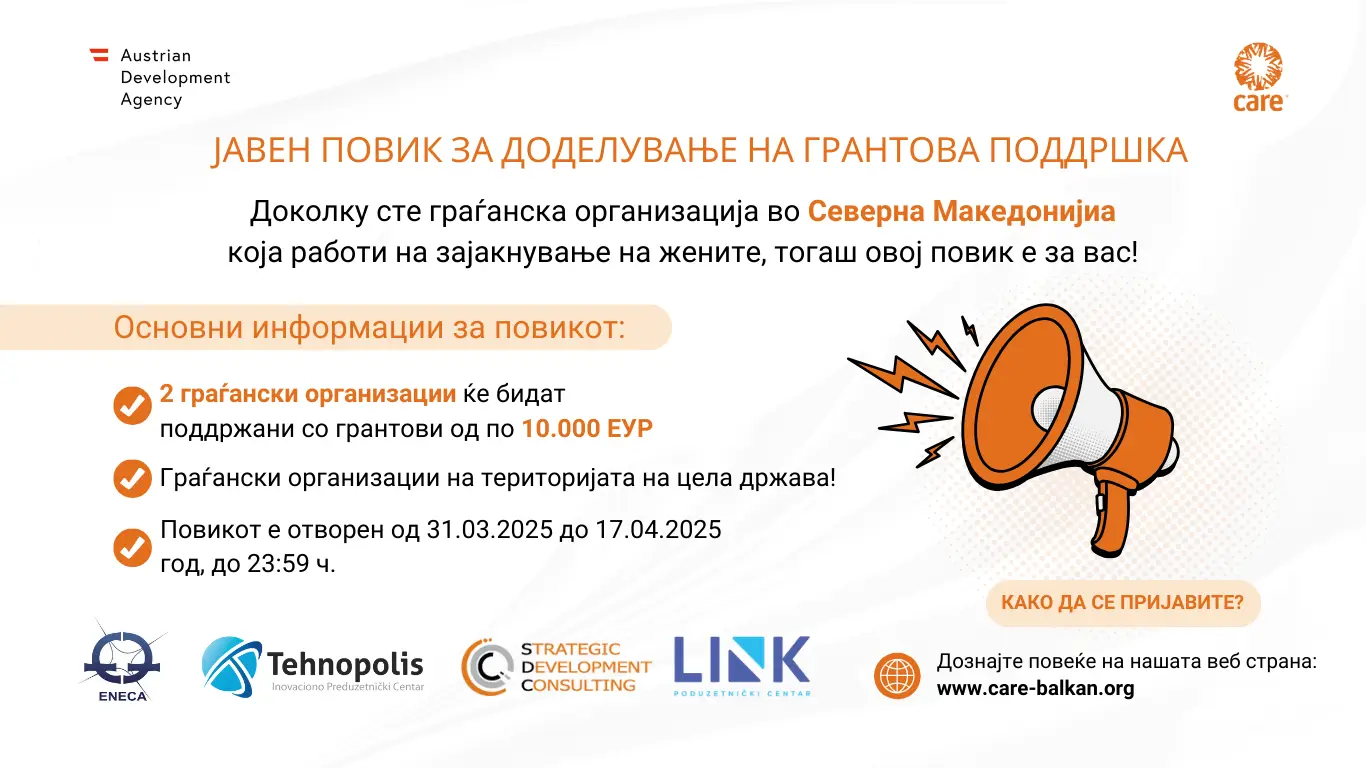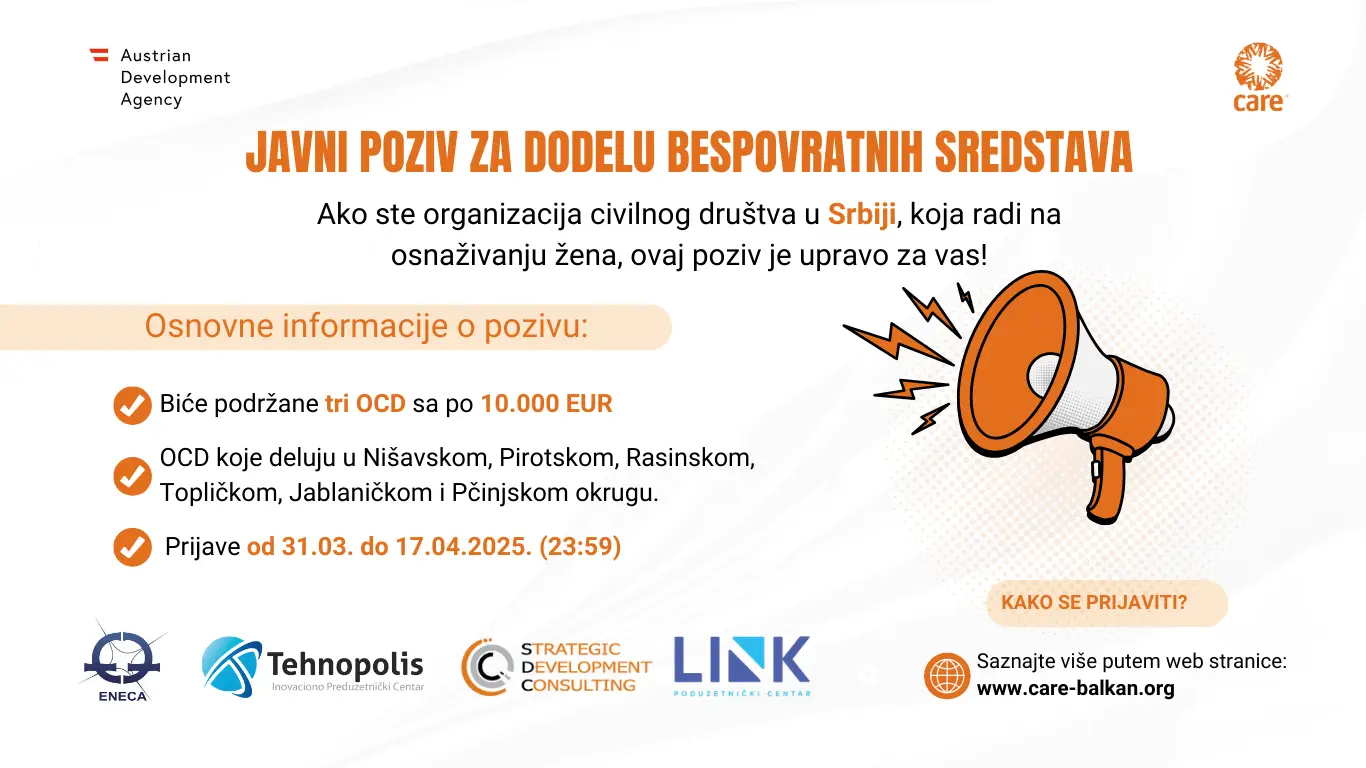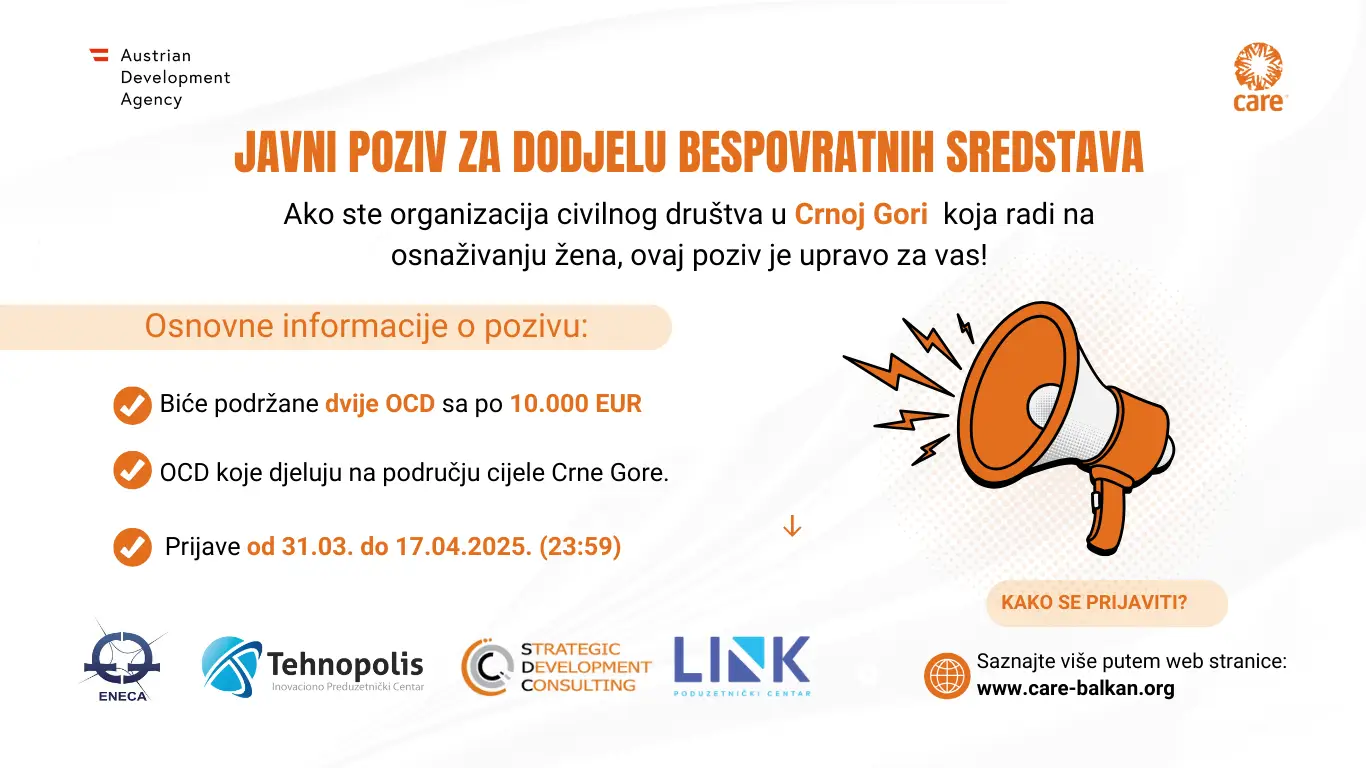The regional conference “Forgotten Communities: Roma Men and Women During the Covid 19 Pandemic” will be held tomorrow in Belgrade, with the aim of bringing together representatives of Roma NGOs, authorities and international organizations to discuss how the Corona virus pandemic has affected the Roma population in the countries of the region, and what are the methods of future joint action in the direction of preventing negative consequences for the vulnerable.
The conference is organized by CARE International Balkans in cooperation with the Roma Women’s Network of the Republic of Serbia, the Roma Women’s Network of BiH “USPJEH” and the Roma Women’s Network PRVA from Montenegro through the third phase of the project “For Active Inclusion and Roma Women’s Rights in the Western Balkans III”, which is funded by the Austrian Development Cooperation (ADC).
CARE International Balkans from the beginning of March 2020 until today supports partner organizations from BiH, Montenegro and the Republic of Serbia, which with their dedicated field work provide direct support and assistance to many local Roma communities. The experience of partner organizations shows that in the midst of the pandemic, the Roma community felt forgotten.
The conference is intended for representatives of government institutions, non-governmental organizations and international organizations from the Republic of Serbia, Bosnia and Herzegovina, Montenegro and the region. CARE International Balkans, as the implementer of this project, expects that the conference will contribute to improving the quality of cooperation of Roma women’s organizations in the region, both among themselves and with relevant government institutions.
The desire of CARE International Balkans is that at the conference through presentations and discussions representatives of relevant organizations and institutions from Bosnia and Herzegovina, Montenegro and the Republic of Serbia present the situation in their countries regarding work with Roma communities in the midst of a pandemic through examples of positive / negative practices, current situation, and to determine, based on common conclusions, the need for better flow of information and improvement of the status, role and importance of Roma women in the region in future work.


